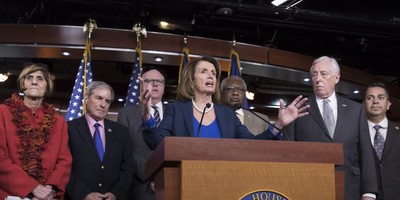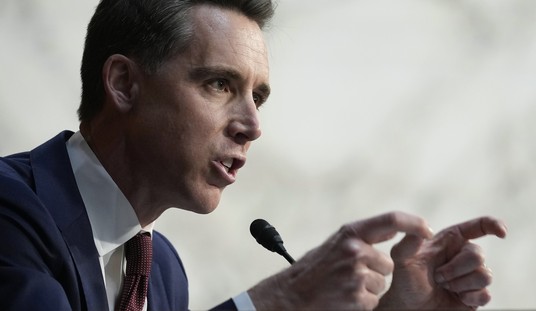Osama bin Laden's error was interpreting restraint, or lack of interest, as weakness. He saw the U.S. pull out of Lebanon after terrorists blew up a Marine barracks, and he saw the U.S. pull out of Somalia after losing a bloody firefight. So he concluded, as he put it, that "the American soldier was a paper tiger and after a few blows ran in retreat."
There is no telling what thoughts ran through his mind as he found himself looking into the gun barrels of U.S. Navy SEALs. But "paper tiger" was probably not one of them.
His was a catastrophic miscalculation. As long as al-Qaida was only a minor threat to U.S. targets abroad, obliterating it was just not worth the trouble. Bin Laden was able to set up shop in Afghanistan with the blessing of the Taliban and go about his bloody business without much worry.
After the 1998 bombings of our embassies in Kenya and Tanzania, Bill Clinton tried a missile strike on a training camp in Afghanistan, but bin Laden escaped and Clinton didn't try again. After al-Qaida was implicated in the 2000 attack on the U.S.S. Cole, George W. Bush elected not to retaliate. Bin Laden tugged on Superman's cape and got away with it.
From that experience, he figured he could hit the United States with impunity -- that his plots would draw an ineffectual response, if any. But when bin Laden carried out the worst terrorist attacks in American history, he forfeited his sanctuary. The paper tiger turned out to be a ferocious predator with one quarry on its mind.
Recommended
In 2001, there was no one-time missile attack on his forces. There was an intensive campaign of aerial bombing that culminated in a ground invasion of Afghanistan. Not only had he assured a response, he had opened the gates of Hell. The U.S. and its allies quickly toppled the Taliban regime, smashed al-Qaida and sent bin Laden into hiding.
There he remained for every restless night since, knowing that the U.S. government would not stop until it found him. On Sunday, those American fighting men he had dismissed gave him the ultimate dismissal.
Responding to attacks or perceived threats with irresistible force is America's strength -- as the Taliban, Saddam Hussein and bin Laden learned. Our weakness is what comes after: reconstructing defeated countries as stable, democratic states.
It's a much tougher undertaking, requiring far more money, knowledge and patience than Americans can muster. We rouse ourselves to ambitious tasks when adversaries challenge us. But as soon as we've taken one down, we lose interest.
American presidents often insist on staying in countries we invade, but they do so in the knowledge that the public's patience and appetite for sacrifice are very limited. So we do our nation-building on the cheap, with an eye on the exit.
That's how we have operated in Afghanistan -- which President Bush shortchanged so he could focus on Iraq, and from which President Obama has promised to begin drawing down our forces in July.
He may not have much choice. A Washington Post-ABC News poll in March found that 64 percent of Americans think the war in Afghanistan has not been worth fighting, and 73 percent favor withdrawal this summer.
And why wouldn't they want out? We have spent 10 years there without showing much progress toward a healthy Afghanistan. The indispensable mission -- defeating those who attacked us -- was largely accomplished by the end of 2001, and it was completed on May 2, 2011.
Chances are slim that we can succeed in transforming a country so alien from our own. When we leave, it may fall back into chaos or even Taliban rule. But that doesn't mean it would pose a threat to us.
The success we had in avenging the 9/11 attacks provides an unforgettable lesson for whoever emerges on top in Afghanistan after we're gone: If you make war on the United States, your destruction will follow. That, we know how to do.

























Join the conversation as a VIP Member